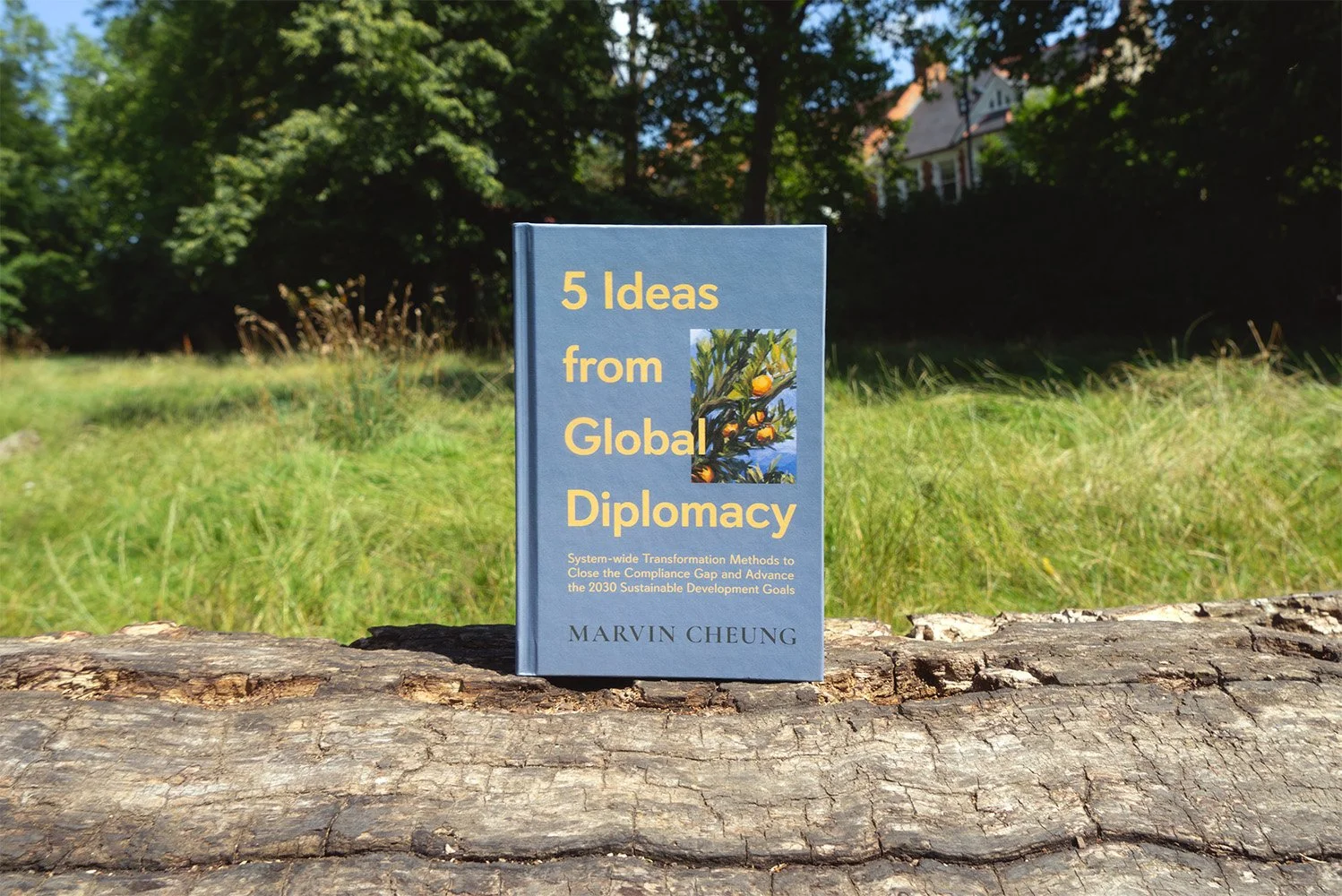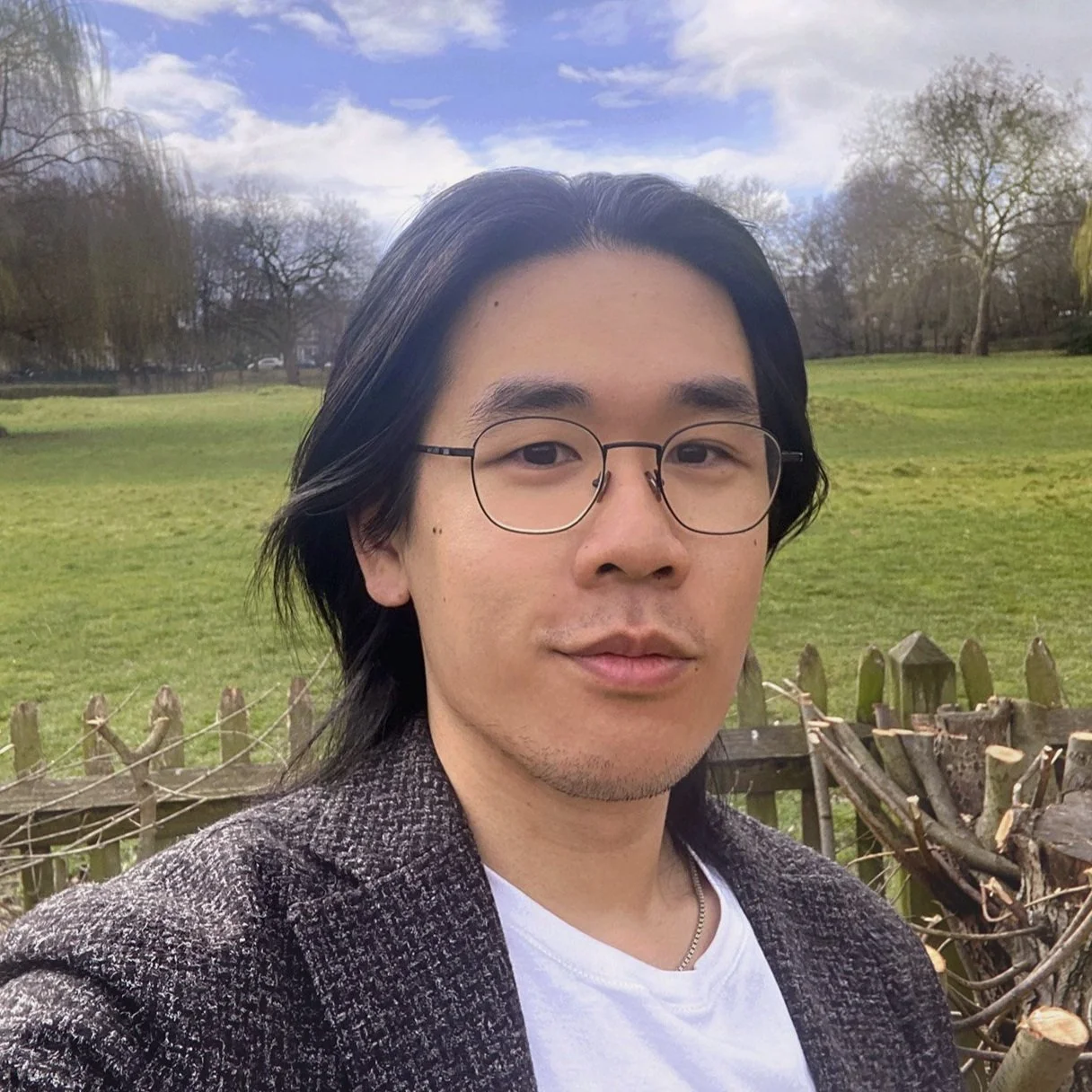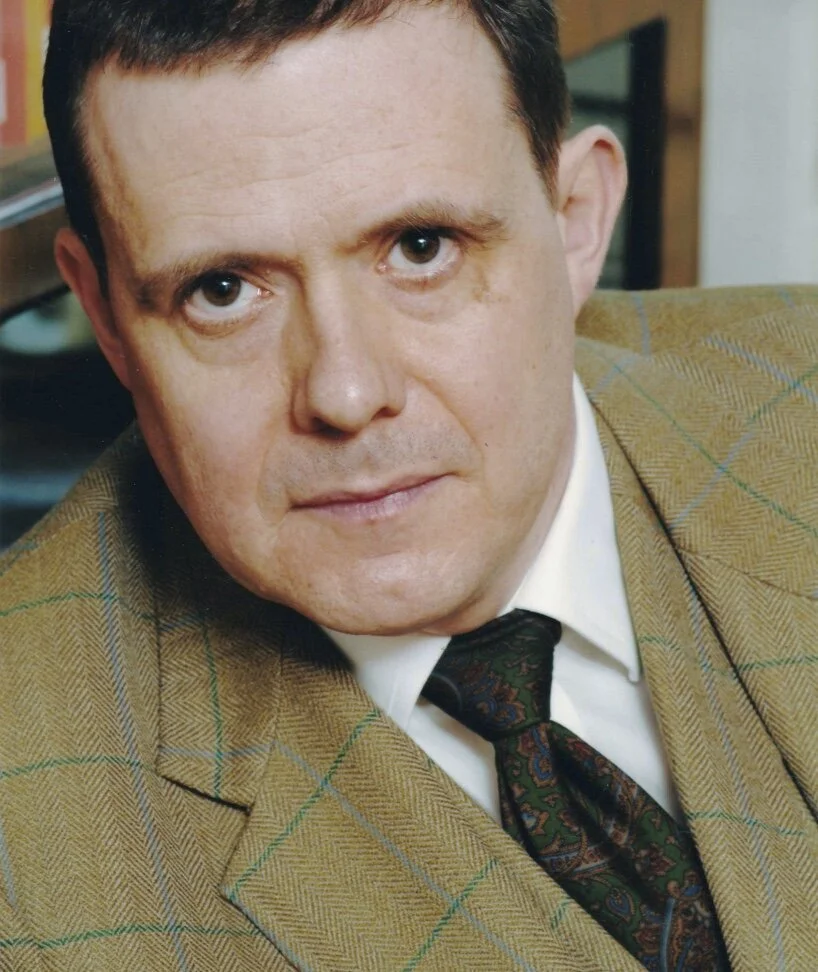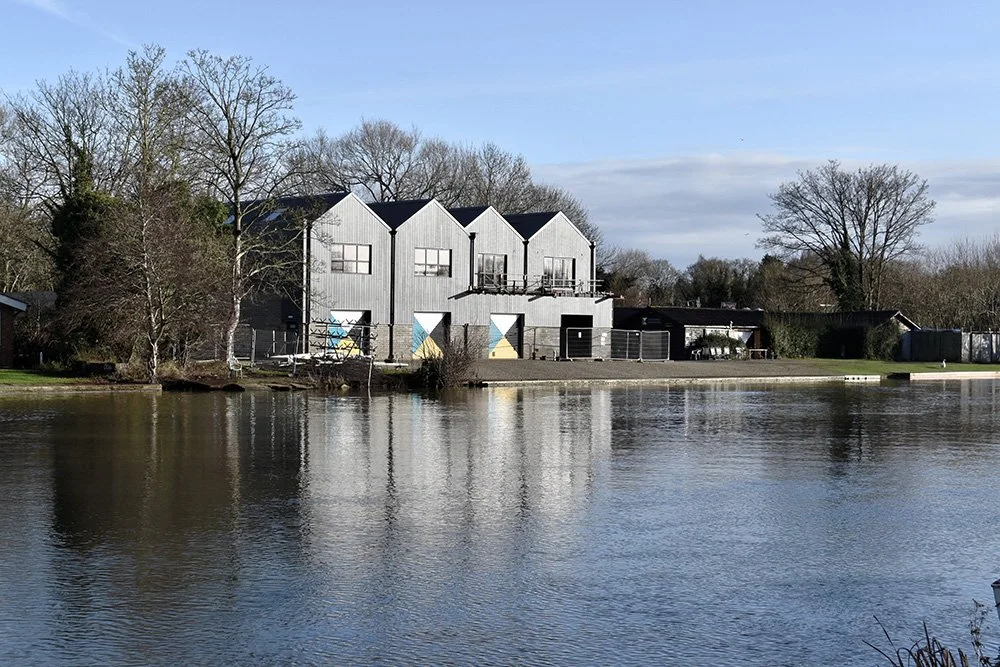Global Consortium for Systems Research (GCSR)
We study, forecast, and guide systems change to solve grand challenges
About the Consortium
The Global Consortium for Systems Research (GCSR) was convened following the 2013 symposium at The Royal Society, "Global Integrated Assessment: Making Sense of Complexity in an Interdependent World". Ahead of its 10th Anniversary in 2022, GCSR announced its new chair at the United Nations General Assembly Science Summit.
GCSR is chaired by Marvin Cheung, Co-Director at the Center for Global Agenda (CGA) at Unbuilt Labs. GCSR was previously chaired by Sebastian Cody, the advisor to four successive Directors General at the International Institute for Applied Systems Analysis (IIASA).
GCSR is currently hosted at the Sustainable Innovation Think Tank (SITT) at Unbuilt Labs.
Seminar on “Solving Grand Challenges with Transdisciplinary Research (TDR)”
Grand challenges are wicked problems characterized by their global scope, high significance, and potential to be solvable. Potential to be solvable is important to emphasize. As Churchman remarked in 1968: “In principle, we have the technological capability of adequately feeding, sheltering […] providing adequate medical care [… and] sufficient education for every inhabitant of the world.” Why are we stuck here and how do we move forward? Transdisciplinary research responds to these demands.
This 10-week seminar is designed to help global leaders of today and tomorrow confidently combine transdisciplinary research methods with systems concepts to solve grand challenges. Through a range of readings, case discussions, presentations, reflections, and an optional 1:1 tutorial, the course will focus on (1) evaluating knowledge claims from a systems perspective, (2) identifying transdisciplinary methods to develop them, and (3) honing in on a solution space strategically. The seminar is taught by Marvin and uses the free, open access 5 Ideas from Global Diplomacy as a core text.
Upon successful completion of this seminar, participants will be awarded a non-credit certificate of completion from GCSR and membership to GCSR including your own membership profile.
2022 - 2023 10th Anniversary Strategic Plan
Letter from the Chair — Dear Friends and Colleagues,
Thank you for joining us at the UN General Assembly Science Summit (SSUNGA77). I am honored to succeed Sebastian Cody as the Chair of the Global Consortium for Systems Research (GCSR). GCSR was convened following the 2013 symposium at The Royal Society, Global Integrated Assessment: Making Sense of Complexity in an Interdependent World. Sebastian has served as an advisor to four successive Directors Generals at the International Institute for Applied Systems Analysis (IIASA). I am grateful for his contributions and support leading up to the announcement of the 2022-2023 10th Anniversary Strategic Plan. See the full announcement in “Recent News”.
GCSR at the UN General Assembly Science Summit
A heartfelt thank you to our keynote presenter — Jim Hall, Professor of Climate and Environmental Risks, Director of Research at the School of Geography and the Environment, University of Oxford.
GCSR Leadership
-
Marvin Cheung is a business executive and global governance scholar. He co-directs the Center for Global Agenda (CGA) and directs the Venture Strategy Group (VSG) at Unbuilt Labs, where he serves as a special advisor to individuals, boards, and research organizations. He is a Global Diplomacy Fellow at the United Nations Institute for Training and Research (UNITAR), a UNESCO Inclusive Policy Lab Expert on the 2030 Sustainable Development Goals and Strategic Planning, and a member of different groups, including the Planetary Health Alliance, Boards Impact Forum, and Chairman’s Network, where he regularly shares research and perspectives to private and public Boards of Directors. In 2022, he succeeded the advisor to four successive Directors General at the International Institute for Applied Systems Analysis (IIASA) as Chair of the Global Consortium for Systems Research (GCSR). In 2023, he began serving on the Advisory Board of the Lifeboat Foundation, dedicated to mitigating existential risks, alongside four Nobel Laureates. He was a featured speaker at the United Nations General Assembly Science Summit.
-
Sebastian Cody is a Visiting Researcher at The Communication and Media Research Institute (CAMRI). As a senior media executive he has been responsible for many network television programmes including the celebrated discussion series ‘After Dark’. In 2010 his company launched an online social history of Britain alongside the BFI, BBC, The National Archive and others, ‘InView’. Recently he was Associate Producer of the HBO film ‘Top Ten Monks’ and the BBC film ‘The Ballet Master’. He has written for many newspapers including The Times and The Guardian and acts as a consultant for companies and NGO’s, such as Universal Music/Decca and IIASA, the international science research organisation where he advised four successive Directors General over the last fifteen years.
For the last twenty years Sebastian Cody has been a Visitor at the University of Oxford, variously at the Environmental Change Institute at the Oxford University Centre for the Environment and the Rothermere American Institute. He was elected a Senior Associate Member of St Antony’s College Oxford in 2004.
Systems Research Financing and Opportunities
-
Venture Strategy Group at Unbuilt Labs, Innovator in Residence (IIR)
We are pleased to support the next generation of high-impact research organizations solving grand challenges. Founders make critical decisions during the early stages, but the current research ecosystem offers little support during the discovery and exploration process. We offer a one of its kind pay-what-you-want Innovator in Residence (IIR) Program, where founders looking to set up solutions-oriented research organizations receive 1 year of support through monthly 1:1 Advising Sessions. We can help you clarify your Theory of Change or mandate, design a research agenda, and more generally, offer sound advice. This program is open to founders who have received less than 100k USD in financing.Wellcome Trust, Discovery Research
By funding ambitious, curiosity-driven research across a range of academic disciplines, we can give researchers from different backgrounds the resources they need to take on big questions and overcome barriers to progress. Discovery Research funding is available across three awards for researchers at various stages of their careers. Wellcome Early-Career Awards: this award supports researchers to establish their independence and trajectory in discovery research. Wellcome Career Development Awards: for mid-career researchers who are ready to lead a substantial, innovative research programme and achieve international standing. Wellcome Discovery Awards: this award supports established researchers and teams.Sante Fe Institute, Postdoctoral Research Fellows
SFI postdoctoral fellows are selected from around the world and across science for their intellectual curiosity, quantitative rigor, and multidisciplinary creativity. The SFI Complexity Postdoctoral Fellowships are funded by gifts from Pam and Pierre Omidyar, the ASU-SFI Center for Biosocial Complex Systems, the James S. McDonnell Foundation, the Ford Foundation, the Schmidt Foundation and from individual donors and other sources. Chosen during an annual selection process, these fellows pursue independent research agendas. Program Postdoctoral Fellows are grant funded. They are chosen by the grant PI and their research agenda is grant related.International Institute for Applied Systems Analysis (IIASA), YSSP and Postdoctoral Fellowships
As an early career researcher at IIASA you are integrated into a research group of typically 10-20 researchers, from junior to senior, as well as into a bigger IIASA research program that typically covers several research groups. Within your research group you are likely addressing challenges with an interdisciplinary team of colleagues with different backgrounds, trained in different modes of thinking. IIASA offers the Young Scientists Summer Program (YSSP) for PhD students, and a range of Postdoc opportunities including fully funded research positions of up to two years to study topics related to the IIASA research agenda. -
Cornell Engineering, Ph.D. Systems
Active areas of research include: Multi-agent simulation framework for cooperative observing systems of systems; Patterns in architectural decisions and fast problem formulation in system architecture; Extreme weather forecasting using constellations of nanosatellites; Improved human-computer interaction for design of complex systems; Integrated materials and process design for carbon capture systems; Cyber-physical infrastructure and informatics for healthy living in smart cities; Enhancing the food security through sustainable regional food systems development; Forecasting evacuation behaviors of coastal communities in response to storm hazard information; Willingness to improve the resiliency of New York City’s transportation system; Pharmaceutical manufacturing modeling and control; and Systems design of chemical manufacturing from shale gas.MIT Sloan School of Management, Ph.D. System Dynamics
System Dynamics was founded at MIT Sloan in 1956 by Professor Jay W. Forrester. This discipline combines the theory, methods, and philosophy needed to analyze the behavior of systems — not only in management, but also in such other fields as environmental change, politics, economic behavior, medicine, and engineering. A concentration in System Dynamics draws on organization studies, behavioral decision theory, and engineering to provide a common foundation for understanding and influencing how things change over time. Students study principles of systems, economic and industrial dynamics, and policy analysis, while doing additional work in economics, information systems, statistics, and political science.University of Warwick, Ph.D. MathSys (Mathematics for Real-World Systems) CDT
Your project should be in the area of “Mathematics for Real-World Systems”. The CDT’s bid for funding to the EPSRC was based principally on four application areas, and your project should align closely with one of these: (1) Quantitative biomedical research; (2) Mathematical epidemiology; (3) Socio-technical systems; (4) Advanced modelling and optimisation of industrial processes. Additionally, your project must align with at least one of the EPSRC funding council’s key research areas. Your project must involve a named external partner, and two supervisors.University of California, Berkeley, Ph.D. City and Regional Planning
The Ph.D. in City and Regional Planning at the University of California, Berkeley, provides training in urban and planning theory, advanced research, and the practice of planning. We are focused on three challenges facing cities and regions around the globe. The first is widening inequalities and disparities with respect to income and wealth, race, quality of education and urban services, access to employment opportunities, and environmental health. The second is global climate change and resource scarcity, as increasingly complex threats challenge the ability of cities to function after major disruptions and displacements, whether sudden or gradual. And the third is growing demands for clean, healthy, reliable, and accessible public infrastructure and urban services. Creative analysis, planning, and design are needed to effectively manage these problems.University of Technology, Australia, Ph.D. Transdisciplinary Innovation
In simple terms, transdisciplinary (TD) research is primarily a process, not a product. It typically involves: (1) Mixing academic knowledges from multiple disciplines; (2) Mixing applied knowledges through collaboration with industry; and (3) Co-design with stakeholders through a human-centred approach. The production of new (TD) knowledge usually requires close collaboration with one or more industry partners, who may even co-design the study, alongside other design contributions by other academics. Through this collaboration, the new knowledge is co-produced. Projects will go through phases or moments of being more or less TD. Themes include: (1) Futures; (2) Sustainable Societies; (3) Technology and Humanity; and (4) Transformative Learning.Deep Science Ventures, Venture Science Doctorate (VSD)
Deep Science Ventures is launching a new PhD program, the Venture Science Doctorate, to put venture at the heart of research. VSD is an alternative. A 3-year, fully-funded, sector-agnostic PhD program, running our proven innovation model. It’s awarded by Deep Science Ventures College; an independently accredited, decentralised institution. We have partnered with leading institutions, who are supporting across research and venture creation. Collaborating institutions include the Henry Royce Institute, the James Hutton Institute, Imperial College, the University of Edinburgh, University College London, Goldsmiths, University of London, Cornell University and the Mayo Clinic.Arts and Humanities Research Council (AHRC), UK
London Arts & Humanities Partnership (LAHP)
Led by University College London, along with King's College London, Queen Mary University of London, the Royal College of Music, the Royal Central School of Speech and Drama, the Royal CollegeLondon Arts & Humanities Partnership (LAHP)
Led by University College London, along with King's College London, Queen Mary University of London, the Royal College of Music, the Royal Central School of Speech and Drama, the Royal College of Art, the London School of Economics & Political Science, and the University of London.Open-Oxford-Cambridge
Led by the University of Oxford, along with the University of Cambridge and the Open University.South, West & Wales Doctoral Training Consortium 2 (SWW2)
Led by the University of Bristol, along with Aberystwyth University, Bath Spa University, Cardiff University, Cranfield University, the University of Exeter, the University of Reading, the University of Southampton, the University of the West of England and the National Museum Wales.Biotechnology and Biological Sciences Research Council (BBSRC), UK
East of Scotland Bioscience Doctoral Training Partnership (EASTBIO)
Led by the University of Edinburgh, along with the University of Aberdeen, the University of Dundee, the University of St Andrews and the University of Stirling.London Interdisciplinary Doctoral Programme (LIDo)
Led by University College London, along with Birkbeck University of London, King's College London, the Royal Veterinary College, the London School of Hygiene and Tropical Medicine and Queen Mary University of London.Midlands Integrative Biosciences Training Partnership (MIBTP)
Led by the University of Warwick, along with Aston University, the University of Birmingham, Harper Adams University and the University of Leicester.Oxford Interdisciplinary Bioscience DTP
Led by the University of Oxford, along with Oxford Brookes University.FoodBioSystems DTP
Led by the University of Reading, along with Cranfield University, the University of Surrey, Queen's University Belfast, Aberysrwyth University and Brunel University London.Economic and Social Research Council (ESRC), UK
Cambridge Social Science Doctoral Training Partnership
Based at the University of Cambridge.Grand Union Doctoral Training Partnership
Led by the University of Oxford, along with the Open University and Brunel University London.Northern Ireland and North East (NINE) Doctoral Training Partnership
Led by Durham University, along with Newcastle University, Northumbria University, Queen’s University of Belfast, Teesside University, Ulster University and the University of Sunderland.North West Social Sciences Doctoral Training Partnership
Led by the University of Liverpool, along with Keele University, Lancaster University and the University of Manchester.Scottish Graduate School of Social Sciences Doctoral Training Partnership
Led by the University of Edinburgh, along with the University of Aberdeen, the University of Dundee, Edinburgh Napier University, the University of Glasgow, Glasgow Caledonian University, Heriot-Watt University, Queen Margaret University Edinburgh, the University of St Andrews, the University of Stirling, the University of Strathclyde and SRUC.Wales Doctoral Training Partnership
Led by Cardiff University, along with Aberystwyth University, Bangor University, Cardiff Metropolitan University, the University of Gloucestershire and Swansea University.Engineering and Physical Sciences Research Council (EPSRC), UK
EPSRC Centre for Doctoral Training in Engineered Tissues for Discovery, Industry and Medicine (lifETIME)
Led by the University of Glasgow, along with Aston University and the University of Birmingham.EPSRC Centre for Doctoral Training in Intelligent Games and Game Intelligence (IGGI)
Based at Queen Mary University of London and the University of York.Medical Research Council (MRC), UK
Cambridge MRC Doctoral Training Partnership
Led by the University of Cambridge, along with the Babraham Institute.Great West 4 (GW4)
Led by Cardiff University, along with the University of Bath, the University of Bristol and the University of Exeter.London Intercollegiate DTP
Led by the London School of Hygiene and Tropical Medicine, along with St George’s University of London.Oxford MRC Doctoral Training Partnership
Based at the University of Oxford.Precision Medicine Doctoral Training Programme
Led by the University of Edinburgh, along with the University of Glasgow.Trials Methodology Research Partnership (TMRP)
Led by the Medical Research Council.UCL-Birkbeck MRC DTP
Led by University College London, along with Birkbeck College.Natural Environment Research Council (NERC), UK
Science and Solutions for a Changing Planet (SSCP) DTP
Based at Imperial College London.One Planet DTP2
Led by Newcastle University, along with Northumbria University.London DTP2
Led by University College London, along with Birkbeck, University of London, Brunel University London, King’s College London, Queen Mary University of London and Royal Holloway, University of London.QUADRAT DTP
Led by the University of Aberdeen, along with Queen’s University Belfast.Cambridge Climate, Life and Earth (C-CLEAR) DTP
Based at the University of Cambridge.Adapting to the Challenges of a Changing Environment (ACCE) DTP
Led by the University of Liverpool, along with the University of Sheffield and the University of York.Environmental Research DTP
Based at the University of Oxford.Science of the Environment, Natural and Anthropogenic Processes, Impacts and Opportunities (SCENARIO) DTP
Led by the University of Reading, along with the University of Surrey.Scottish Universities Partnership for Environmental Research (SUPER) DTP
Led by the University of St Andrews, along with the University of Aberdeen, Edinburgh Napier University, Heriot-Watt University, the University of the Highlands & Islands, University of Stirling, University of Strathclyde and the University of the West of Scotland.Science and Technology Facilities Council (STFC), UK
Cambridge Data Intensive Science CDT
Based at the University of Cambridge.UCL's Centre for Doctoral Training in Data Intensive Science
Based at University College London.
If you would like to share a resource with the community, click here to access our Google Form.
Recent News
-
Dear Friends and Colleagues,
The Center for Global Agenda (CGA) at Unbuilt Labs and the Global Consortium for Systems Research (GCSR) will be co-organizing the upcoming 2024 Future of Global Governance Series Conference: 8 Billion Voices, tentatively to be held at the Royal Society in London. We are launching our Global Consultation on Agenda Priorities (https://unbuiltlabs.com/2024-future-of-global-governance-series), and would love to hear the challenges you find important to the global agenda ahead of the public announcement.
Thank you,
Marvin Cheung,
Global Consortium for Systems Research (GCSR), Chair
-
Dear Friends and Colleagues,
It is a delight to share the proceedings for the 2023 Future of Global Governance Series Conference: Sustainable Development, Risk, and Strategic Foresight in a Transdisciplinary Systemic World.
All recordings are available on our website: https://unbuiltlabs.com/2023-future-of-global-governance-series Below is the full agenda.
9:00 – 9:10 AM Welcome – Moderator; Marguerite Van Cook (Co-Director, Center for Global Agenda (CGA) at Unbuilt Labs
9:10 – 9:25 AM Presentation – A Theory on Transdisciplinary Systems Research; Marvin Cheung (Co-Director, Center for Global Agenda (CGA) at Unbuilt Labs; Chair, Global Consortium for Systems Research (GCSR); United Nations Expert and Fellow)
9:25 – 9:40 AM Presentation – Rethinking Development in the Anthropocene; Dr. Jennifer Keahey (Associate Professor, Arizona State University) - use code CNF23 for 50% discount
decolonizing-development
9:40 – 9:55 AM Presentation – Transdisciplinary Approaches to Lunar Governance; Harshita Khera (Operations Director at Open Lunar Foundation)
9:55 – 10:05 AM Break
10:05 – 10:20 AM Presentation – Advancing science literacy through scientist-artist partnerships; James Romberger (Artist and Educator)
10:20 – 10:35 AM Presentation – Indigenous co-governance: Perspectives on a nature and community-centered approach for sustainable development on Turtle Island; Sherry Da (Graduate Student, University of Oxford; MSc in Water Science, Policy, and Management)
10:35 – 10:50 AM Presentation – Expanding Approaches to Climate Governance in Africa through Participatory Research Models; Achilles Kallergis (Director of Cities and Mobilities, Zolberg Institute on Migration and Mobility and Assistant Professor, The New School) and Manavi Datta (Equity Researcher, Rivera Consulting Inc.)
10:50 – 11:00 AM Thank you.
Thank you,
Marvin Cheung,
Global Consortium for Systems Research (GCSR), Chair
-
Dear Friends and Colleagues,
Thank you for being part of the Global Consortium for Systems Research (GCSR) community. It is my pleasure to chair such a wonderful organization. We have been very busy reviewing past work and putting together new strategies the past six months since the announcement of our 2022-2023 10th Anniversary Strategic Plan at the UN General Assembly Science Summit. I am pleased to share five updates:
1. As we continue to organize around our mandate: "We study, forecast, and guide systems change to solve grand challenges", it is helpful to provide some common ground and foster transdisciplinary collaborations across our 10 Working Groups (WGs). I am pleased to announce our 2023-2024 theme "Quantum Futures". Please feel free to brainstorm ideas, suggest initiatives, and treat this as a blank canvas. Email me your thoughts (Marvin@UnbuiltLabs.com). If you are looking for inspiration, some starting points include "the quantum turn", "quantum social sciences", and "quantum information science".
2. We have recently set up a new public forum for GCSR on the
Millennium Alliance for Humanity and the Biosphere (MAHB)
at Stanford University: https://mahb.stanford.edu/groups/public-forum-for-the-global-consortium-for-systems-research-gcsr/ Please feel free to join in - we expect to host more interactive discussions there in the future.
3. The Collaborative Peer Review Process (CPRP) coordinated by GCSR for my publication (Closing the Compliance Gap: System-wide Transformation Methods for the 2030 Sustainable Development Goals) at the United Nation Institute for Training and Research (UNITAR) is well underway. The review process has been featured by the Academic Council on the United Nations System (ACUNS) and the Network for Transdisciplinary Research (td-net) at the Swiss Academies of Arts and Sciences. The application to be a collaborative peer reviewer is available here: https://forms.gle/74FdvPv2m1fbmbhZ7 Collaborative Peer Reviewers will be formally credited in the acknowledgements of the publication. Because the aim of the collaborative peer review is to get the widest possible participation and broadest possible expertise, those who apply are generally accepted. Early career researchers and researchers from historically underrepresented communities are encouraged to apply.
4. WG2: Systems Research Financing and and Opportunities have a new Google Form for sharing resources with the GCSR community: https://forms.gle/JC7ySpW22g3SEPcz7 Shortlisted opportunities will be included on our website: https://unbuiltlabs.com/gcsr
5. Dr. Christine Welch (Visiting Fellow, Portsmouth Business School; Managing Editor, Systemist Journal) has kindly invited GCSR members and affiliates to participate in the 23rd UK Systems Society International Conference 2023 at St Hilda's College at Oxford University on the 14th and 15th of September. The Call for Paper (due 30th June 2023) and details are available here: https://www.systemsforum.org/ukss-international-conference-2023/
Thank you,
Marvin Cheung,
Global Consortium for Systems Research (GCSR), Chair
-
Dear Friends and Colleagues,
GCSR is delighted to co-organize the 2023 Future of Global Governance Series with the Center for Global Agenda (CGA) at Unbuilt Labs. Below is the Call for Abstracts. I hope to see you there!
The Future of Global Governance Series: Sustainable Development, Risk, and Strategic Foresight in a Transdisciplinary Systemic World
Organizers: Marvin Cheung and Marguerite Van Cook, Ph.D.
Organizations: The Center for Global Agenda (CGA) at Unbuilt Labs and the Global Consortium for Systems Research (GCSR)
Date: 11 Nov 2023, Saturday
Location: Online, Hybrid Venue TBC
Format: 10 minutes presentation with 5 minutes Q&A
Description:
Building upon the 2022 Future of Global Governance Series Workshops held at the UN General Assembly Science Summit, the Center for Global Agenda (CGA) at Unbuilt Labs is excited to partner with the Global Consortium for Systems Research (GCSR) to present the 2023 Future of Global Governance Conference.
This year's conference is inspired by CGA Co-Director's forthcoming publication with the United Nations Institute for Training and Research (UNITAR): "Closing the Compliance Gap: System-wide Transformation Methods for the 2030 Sustainable Development Goals", Prof. James Romberger's eco-fiction graphic novel Post York (Dark Horse, 2021; translation to Spanish, 2023) on New York flood scenarios, and GCSR’s 2023-2024 theme "Quantum Futures".
We are honored to have great presentations and speakers last year, including Jim Hall, FREng (Professor of Climate and Environmental Risks; Director of Research, School of Geography and the Environment, University of Oxford), Steve MacFeely (Director of Data and Analytics, World Health Organization (WHO)),
Ivy Kwan Arce (Board Member, Treatment Action Group (TAG); Research in Action Award (RIAA) Honoree),
and Rachele Hendricks-Sturrup, DHSc, MSc, MA (Research Director, Real World Evidence at Duke-Margolis Center for Health Policy).
We are very much looking forward to hearing exciting and emerging perspectives this year as well.
To apply, please email the following to marvin@UnbuiltLabs.com by the 14th of October 2023:
(1) Proposed title for a 10-minute presentation
(2) Short abstract (One paragraph will suffice. Longer abstracts should not exceed 150 words.)
(3) Short biography
We are open to all proposals relevant to the title of the conference and we are especially keen on proposals that take on a systems and/ or transdisciplinary perspective.
Early career researchers, historically underrepresented people, and practitioners including artists are encouraged to apply. We will accept proposals on a rolling basis. We read and appreciate every application. Thank you from the organizing team.
To read more about our 2022 Future of Global Governance Series, see: https://unbuiltlabs.com/2022-future-of-global-governance-series
For the most up to date information on the 2023 conference, see: https://unbuiltlabs.com/2023-future-of-global-governance-series
Thank you,
Marvin Cheung,
Global Consortium for Systems Research (GCSR), Chair
-
Dear Friends and Colleagues,
Thank you for joining us at the UN General Assembly Science Summit (SSUNGA77). I am honored to succeed Sebastian Cody as the Chair of the Global Consortium for Systems Research (GCSR). GCSR was convened following the 2013 symposium at The Royal Society, Global Integrated Assessment: Making Sense of Complexity in an Interdependent World. Sebastian has served as an advisor to four successive Directors Generals at the International Institute for Applied Systems Analysis (IIASA). I am grateful for his contributions and support leading up to the announcement of the 2022-2023 10th Anniversary Strategic Plan.
As part of the 10th Anniversary Strategic Plan, I would like to reaffirm GCSR’s commitment to being a force for positive change through cutting-edge and pragmatic research. I am pleased to present a series of initiatives under our revised mandate: We study, forecast, and guide systems change to solve grand challenges. Grand challenges such as the 2030 SDGs are characterized by their high global priority and complex causality: attempts to intervene create irreversible changes as well as unintended second and third order consequences. A systems perspective is essential to solving grand challenges.
Researchers have a critical role to play in showing the way forward. GCSR will serve as a platform to convene experts such as yourself in times of great uncertainty.
Our work at GCSR will be guided by the Center for Global Agenda (CGA) at Unbuilt Labs’ High Level Recommendation and Global Strategy. We will also operate in line with the host organization Unbuilt Labs’ Ethics Statement.
It is a pleasure to lead GCSR. I look forward to learning from and with you. We will continue to iterate and develop our programs with your feedback. Please do not hesitate to reach out: [log in to unmask].
GCSR at the UN General Assembly Science Summit
A heartfelt thank you to our keynote presenter — Jim Hall, Professor of Climate and Environmental Risks, Director of Research at the School of Geography and the Environment, University of Oxford: https://vimeo.com/760243409
1. Become an Associate Member
We are an inclusive global community and anyone can now become an Associate Member for free by signing up for the GCSR List on JISCMail. This is an e-mail forum for non-moderated educational and research discussions. The site contains instructions on how to join, use, or leave the forum. We will use the GCSR list not only for discussions, but also to alert members about GCSR events, major changes to the contents of the website, and more.
2. Working Groups
I am pleased to build upon the 5 subject categories identified under Sebastian's leadership and, in accordance with the 2022-2023 Strategic Plan Concept Note, create working groups around topics including:
WG1: Systems Thinking
WG2: Systems Research Financing and Opportunities
WG3: Global Systems and Peace
WG4: Space Governance
WG5: Geoengineering and Socio-Ecological Systems
WG6: Health Policy and Systems Research
WG7: Action Research and Practice-Based Research
WG8: Systems Research and Futures Studies
WG9: Systems Change
WG10: Teaching Pedagogy and Curriculum Development
To build a robust community, our priority for 2022-2023 will include WG1: Systems Thinking, to provide an approachable starting point for people interested in engaging, and WG2: Systems Research Financing and Opportunities, to provide researchers with funding and opportunities to develop their work.
Click here for the Google Form to join a Working Group. At the end of the form, you can select whether you would like to share your information with others. We will include your information on a spreadsheet if you opt-in to sharing. This spreadsheet will be shared with others who sign up to join a working group.
3. Steering Committee
Each Working Group will have a 3-5 member volunteer Steering Committee as well as Steering Committee Lead or Co-Leads. To apply, please email GCSR Chair, Marvin Cheung, [log in to unmask] with a short biography as well as a few sentences on one or two initiatives the Working Group can take on to support the systems research ecosystem and our mandate: we study, forecast, and guide systems change to solve grand challenges.
WG1: Systems Thinking, GCSR Systems Research Toolkit
To develop common foundational concepts, methods, and definitions, I have put together the GCSR Systems Research Toolkit including models for organizations, teams, and individuals. We will continue to add to, modify, and develop the Toolkit. Please visit our website for the full toolkit: https://unbuiltlabs.com/gcsr All feedback is appreciated.
WG2: Systems Research Financing and Opportunities, Venture Strategy Group (VSG) at Unbuilt Labs Innovator in Residence (IIR) Program
As the Chair of GCSR, I am also pleased to support the next generation of high-impact systems research organizations solving grand challenges. I currently direct the Venture Strategy Group (VSG) at Unbuilt Labs. Founders make critical decisions during the early stages, but the current research ecosystem offers little support during the discovery and exploration process. VSG offers a one of its kind pay-what-you-want Innovator in Residence (IIR) program, where founders looking to set up solutions-oriented research organizations solving grand challenges receive 1 year of support through monthly 1:1 Advising Sessions. We can help you clarify your Theory of Change or mandate, design a research agenda, and more generally, offer sound advice. This program is open to founders who have received less than 100k USD in financing.
We will continue to build a database of available resources for research across all Working Groups, focusing on resources to support Scope 1: Exploratory Research (See GCSR Systems Research Toolkit for concepts and definitions) and interdisciplinary systems research. If you would like to share a resource with the community, click here to access our Google Form.
Thank you,
Marvin Cheung,
Global Consortium for Systems Research (GCSR), Chair
-
Dear Friends and Colleagues,
It is my pleasure to invite you to the Global Consortium for Systems Research (GCSR) announcement of our 2022-2023 10th anniversary Strategic Plan together with keynote presentation on Systems Science by Jim Hall FREng, Professor of Climate and Environmental Risks; Director of Research, School of Geography and the Environment at the University of Oxford.
It will be part of the broader Future of Global Governance Series by the Center for Global Agenda (CGA) at Unbuilt Labs.
Please register here:
The full briefing together with the agenda is attached as a PDF and is also available on our website:
https://unbuiltlabs.com/cga/workshop-at-the-un-general-assembly-science-summit
To see the GCSR Strategic Plan Concept Note, please see:
Thank you,
Marvin Cheung,
Global Consortium for Systems Research (GCSR), Chair
-
Dear Friends and Colleagues,
I am delighted to meet all of you. As you may already know, the UK Systems Thinking group dates back to April 2013 when Sebastian Cody founded the organization while he was a researcher at Oxford University. Since then, he has found success in the media industry, academia, and consulting. I am particularly in awe of his work within the field of systems thinking and systems research - as a Visitor at Oxford University's Environmental Change Institute, and later as an advisor to four successive Directors Generals at the International Institute for Applied Systems Analysis (IIASA) over the last fifteen years.As the organization heads towards its 10th anniversary next year since its founding in 2013, Sebastian decided to pass the baton to me to continue the organization's excellent work. By way of introduction, I have a diverse background much like Sebastian - I am a business executive and a global governance scholar. I began my career as an architecture researcher at a EU-funded program on Hong Kong's public housing crisis, later, drawn by the idea of design thinking, the question of how individuals and organizations can systematically innovate, I worked in design and made my career in user experience and product management. The Cambridge Analytica incident led me to my current work on sustainable development and my current Board role at the think tank Unbuilt Labs. In late 2021, I became one of the most senior private sector individuals to have undergone Core Diplomatic Training together with delegates and ambassadors to the UN General Assembly as a fellow at UNITAR. I currently direct the Venture Strategy Group (VSG) and co-direct the Center for Global Agenda (CGA) at Unbuilt Labs, where I am in the process of recommending methods non-state actors can use to foster political will, close the compliance gap, and accelerate sustainable development as part of a publication at UNITAR.
We are at a particularly interesting time in history - we recognize the need for systems change, we have methods to manage complexity that is widely adopted within the tech industry, and we have troves of data. There are so many interesting questions to explore. Some of which I have highlighted in a position statement on systems we recently published at CGA (See Appendix A) ahead of the UN General Assembly Science Summit, where I will be speaking at one session and am the co-organizer of another session: How will global strategies affect local communities? How might local communities affect global strategies? How do we create lasting systems change? I have also elaborated on the challenges we face in conducting systems research, with funding being one of the core issues we have identified. Thorough exploratory research is required to gain a better understanding of the wide range of issues and likely outcomes in a complex situation, but current financing models prioritize narrow or siloed investigations which are not conducive to understanding systems, conducting systems research, or learning about systems change.
As I think about the future of systems research, the future of systems thinking, and the future of this organization, I believe a repositioning is helpful to not only better represent the scope and bold inquiries we would like to see, but also to reflect the changes the emerging field has seen, as well as my hope to build an inclusive global community. To be announced at the upcoming UN General Assembly Science Summit in September, UK Systems Thinking group will be renamed to the Global Consortium for Systems Research (GCSR) and hosted at the Sustainable Innovation Think Tank (SITT) at Unbuilt Labs; the announcement will be made alongside other updates from Unbuilt Labs. I am pleased to build upon the 5 subject categories identified under Sebastian's leadership and recommend creating working groups and bringing together volunteer executive committees and/or working group leads around topics such as (WG1) systems thinking, (WG2) systems research financing, (WG3) global systems and peace, (WG4) space governance, (WG5) geoengineering and socio-ecological systems, (WG6) health policy and systems research, (WG7) action research and practice-based research, (WG8) systems change, and (WG9) teaching pedagogy and curriculum development, as part of this concept note.
I moved from New York to London a few weeks ago, which presents a unique opportunity to meet up with members of the group in-person. Please feel free to write and schedule a time to chat whether in-person or virtually. I look forward to working with all of you and my door is always open.
Thank you,
Marvin Cheung,
Global Consortium for Systems Research (GCSR), Chair
To see past communications, please visit our archive on JISCMail.
Become an Associate Member
Join our Email Discussion and Alerting List
We are an inclusive global community and anyone can now become an Associate Member for free by signing up for the GCSR List on JISCMail. The GCSR List is an e-mail forum for non-moderated educational and research discussions on JISCMail. The site contains instructions on how to join, use, or leave the forum. We will use the GCSR list not only for discussions, but also to alert members about GCSR events, major changes to the contents of the website, and more.
Become a Member
Apply for our seminar today!
New program in 2024 — Membership is currently only open to successful participants of the seminar: Solving Grand Challenges Through Transdisciplinary Research (TDR). Members have their own profile and priority access to events.








